Upholstery welt serves two important functional advantages:
- it helps conceal & reinforce seams, and
- improves durability by preventing excessive cover wear at the edges
Let’s make the distinction between single welt & double welt
Single welt is generally machine sewn – either into a cushion:
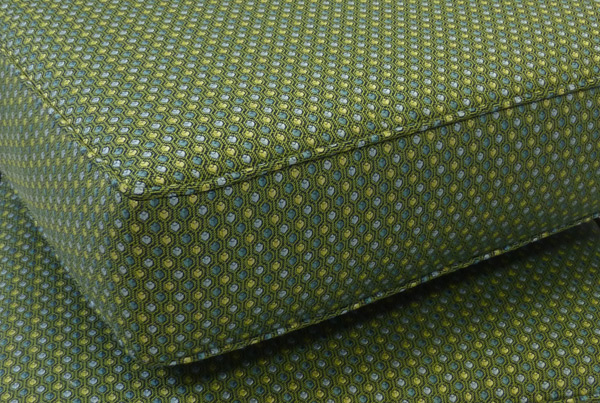
Single, same-fabric welts are commonly used in upholstery
OR attached to a section of fabric and stapled to the frame in tight upholstery:
Double welt is treated as a separate trim – hot glued along the edges of exposed wood surfaces or between two distinct upholstery elements:
Beyond the functional advantages, welt can be loads of FUN!
Here’s your chance to make a statement with your fabric choices! Of course, staying with the same fabric for your welt is of perfectly acceptable (see image at top of page). It’s also an opportunity to step outside of the norm. Here are a few examples of upholstery artisans who have used contrasting welt fabric to add an element of interest to their work:
Andrea Mihalik of Wild Chairy creates a subtle contrast with her choice of welts in her unique black & white chair ‘Spot On’:
Wendy Conklin of The Chair Stylist takes a bold approach with her brightly colored fabric choices, pulling out a different welt color for each chair in this dining set:
Our Funky 50’s Sofa makeover used a complimentary flame-orange velvet welt to define the edges of the teal wool fabric, which really makes it pop!
Finally, our multi-faceted Seuss chair got a moss-green textured welt to pull together the five different fabrics in the chair & cushion:
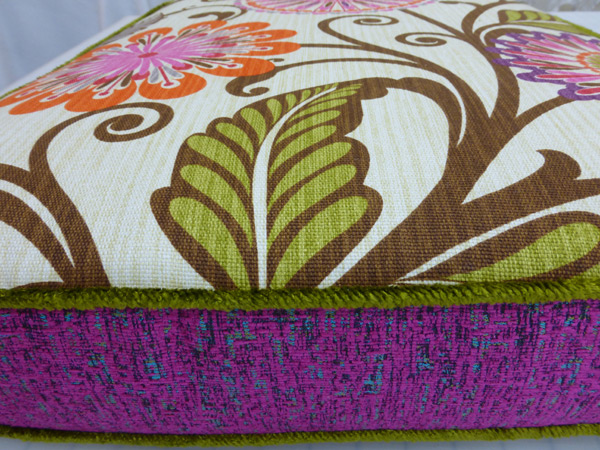
Seuss chair cushion with contrasting welt
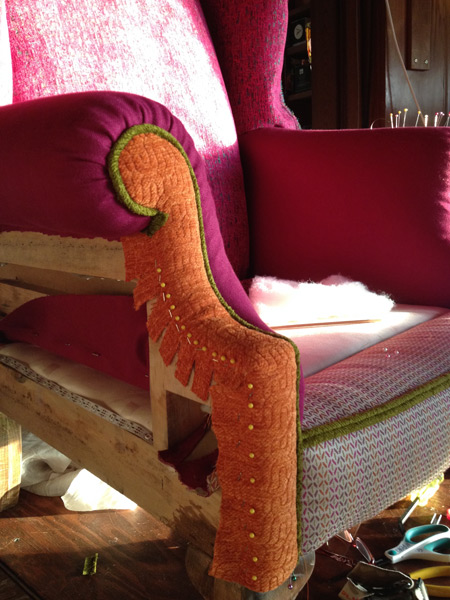
Seuss wingback chair-in-progress. The contrasting welt matches the cushion welt (see image above)
I’d love to hear how you will use welt in your next project – leave a comment below to share your light bulb moment!
Keep your design wheels tuned with our monthly newsletter: subscribe for more gems of inspiration, plus up-to-date information about natural upholstery materials, and new upholstery education opportunities coming your way!
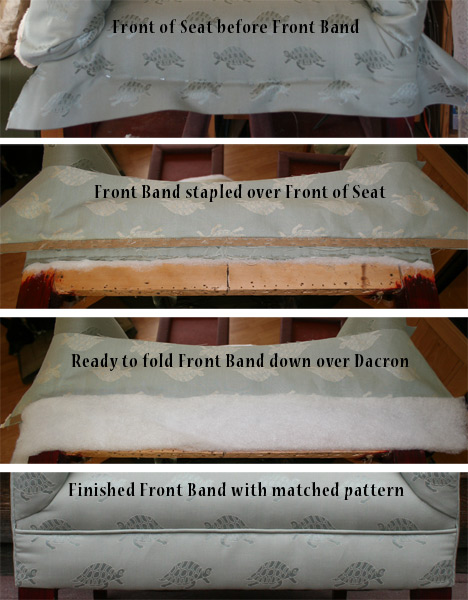
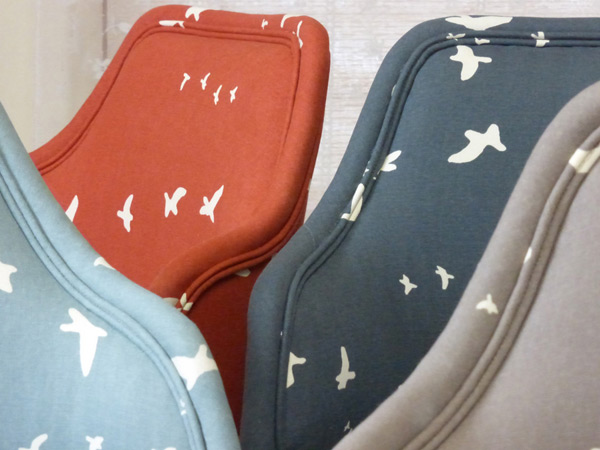
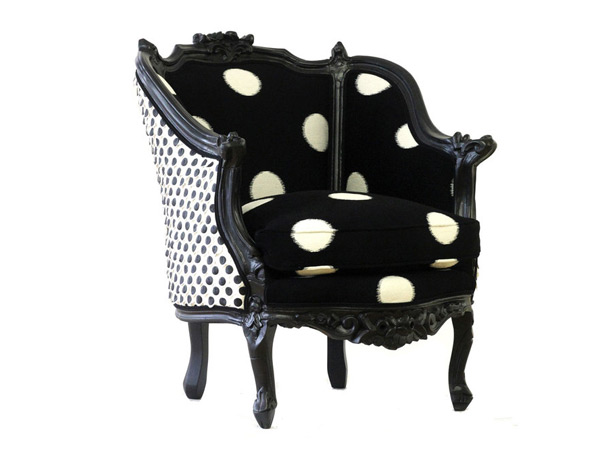
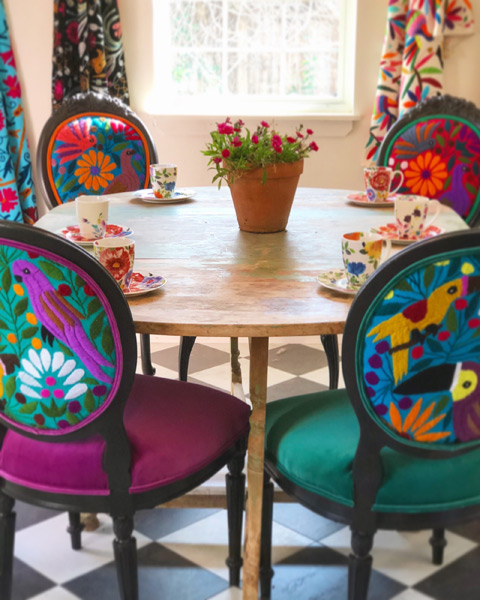
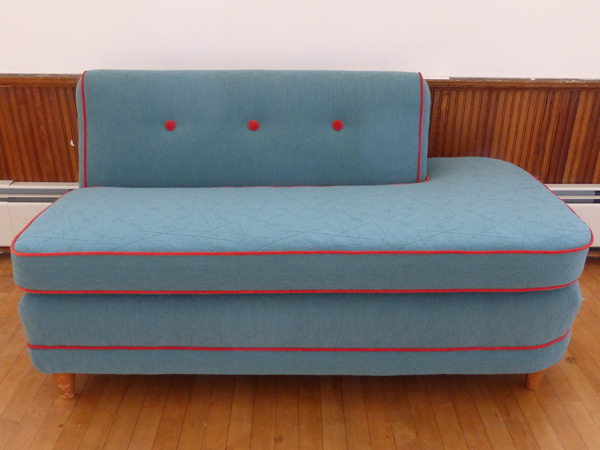
Leave A Comment